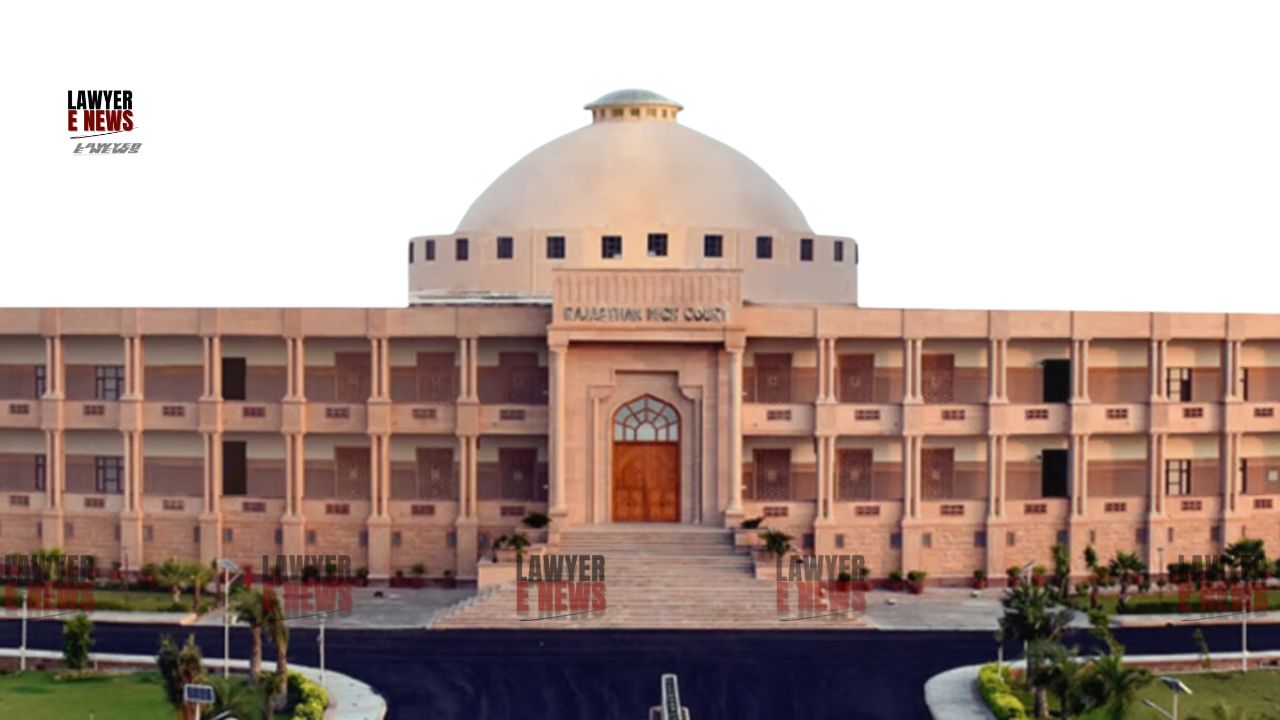-
by Admin
15 February 2026 5:35 AM



The Rajasthan High Court, in a recent judgment, dismissed the appeal of Kailash Chand Sharma, reaffirming the decision of the Income Tax Appellate Tribunal (ITAT) which upheld the addition of Rs. 10,15,921 as cash credit under Section 68 of the Income Tax Act, 1961. The judgment, delivered by a bench comprising Justices Avneesh Jhingan and Ashutosh Kumar, emphasized the necessity for the assessee to provide a credible explanation for significant cash deposits, reinforcing the legal principle that the burden of proof lies with the taxpayer.
The appellant, Kailash Chand Sharma, a 64-year-old pensioner, had filed his income tax return for the Assessment Year 2014-15, declaring an income of Rs. 6,05,250 from pension. The Income Tax Department discovered a cash deposit of Rs. 47,30,000 in his bank account, prompting an investigation under Section 143(3) of the Act. Sharma claimed that the cash belonged to Kana Ram, who had sold an immovable property but lacked a bank account. According to Sharma, the money was to be returned to Kana Ram once he opened a bank account. However, Kana Ram, when summoned, denied these claims, resulting in an addition of Rs. 34,50,000 to Sharma’s taxable income.
The High Court observed that Sharma failed to provide a satisfactory explanation for the source of the cash deposits. The court noted, “The appellant’s explanation fell flat when Mr. Kana Ram denied ownership of the cash. Furthermore, no income tax returns or other evidence were produced to substantiate the sale of immovable property by Kana Ram.” The bench underscored that the burden of proof lies with the assessee to demonstrate the legitimacy of large cash deposits.
The judgment reiterated the principles of Section 68 of the Income Tax Act, which mandates that any sum found credited in the books of an assessee for which the assessee offers no explanation about the nature and source thereof, or the explanation offered is not satisfactory in the opinion of the Assessing Officer, may be charged to income tax as the income of the assessee. The court stated, “The appellant’s inability to corroborate his claims with concrete evidence and the inconsistency in his statements significantly undermine his case.”
Justice Avneesh Jhingan remarked, “The explanation provided by the appellant was not substantiated by any credible evidence. The denial by Mr. Kana Ram and the lack of supporting documents make the appellant’s claims untenable.” Justice Ashutosh Kumar added, “The onus is on the taxpayer to prove the legitimacy of their financial transactions. In this case, the appellant’s failure to do so justifies the addition made by the Assessing Officer.”
The Rajasthan High Court’s dismissal of Kailash Chand Sharma’s appeal reinforces the judiciary’s stance on the importance of credible and substantiated explanations for significant cash deposits. This judgment is likely to serve as a precedent in future cases, emphasizing the taxpayer’s responsibility to provide clear and convincing evidence for their financial claims. The ruling also highlights the critical role of consistent and reliable testimonies in tax assessments.
Date of Decision: 05/07/2024
